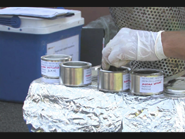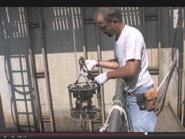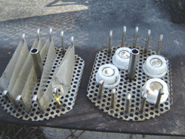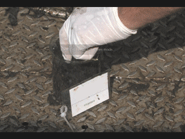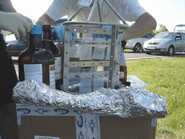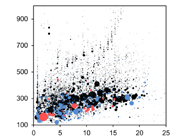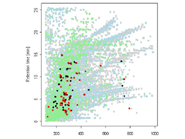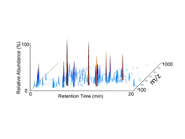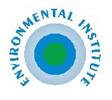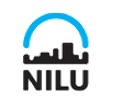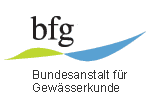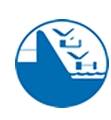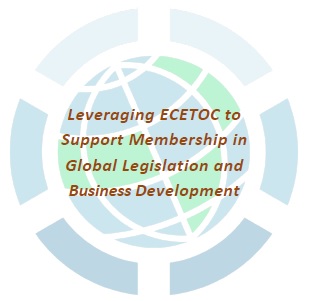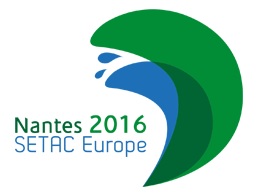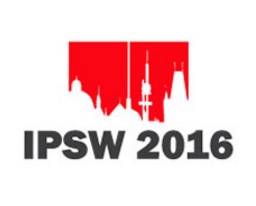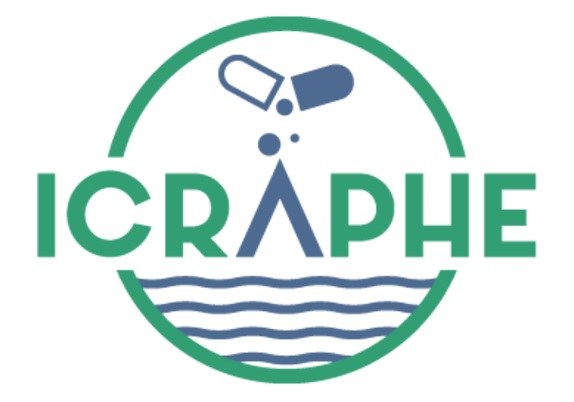You are here
Archive 2016
2016
8 March 2016, Pullman Brussels Midi, Belgium
Annual Technical Meeting: European Centre for Ecotoxicology and Toxicology of Chemicals: Leveraging ECETOC to Support Membership in Global Legislation and Business Development
Learn how ECETOC is meeting current and anticipated scientific challenges in chemical risk assessment.
Identify where ECETOC science can help address challenges in the international harmonisation of chemical regulation.
- Bring together ECETOC scientists, regulatory experts and member company business development managers to explore how a science-based organisation such as ECETOC can help bring best scientific practices into the International Harmonisation of Chemical Regulation.
- Explore implications of ECETOC activities and how science understanding can add value to business activities in emerging markets.
11 May 2016, Barcelona, Spain
Workshop CFIS-ECOPHARMA
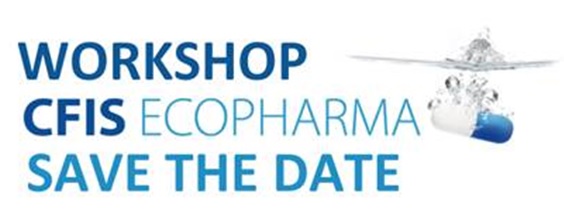 This Workshop is organized in the framework of the CFIS-ECOPHARMA project “Innovative Continuous Flow Integrative Sampler for Pharmaceuticals Compounds Detection”. The main goal of the project is to demonstrate the feasibility of an improved continuous sampler to monitor persistent organic pollutants in water, specially Pharmaceutical and Personal Care Products (PPCPs) and pesticides. CFIS-ECOPHARMA is led by Labaqua in partnership with Aquaenviro, FAI (Ardtoe Marine Research Facility), EMALCSA, Fundación Ramón Domínguez and the Technological Centre of Water Research, Cetaqua.
This Workshop is organized in the framework of the CFIS-ECOPHARMA project “Innovative Continuous Flow Integrative Sampler for Pharmaceuticals Compounds Detection”. The main goal of the project is to demonstrate the feasibility of an improved continuous sampler to monitor persistent organic pollutants in water, specially Pharmaceutical and Personal Care Products (PPCPs) and pesticides. CFIS-ECOPHARMA is led by Labaqua in partnership with Aquaenviro, FAI (Ardtoe Marine Research Facility), EMALCSA, Fundación Ramón Domínguez and the Technological Centre of Water Research, Cetaqua.
Save the date in your diary and remember to submit the registration form, already available here (Free registration, limited places)
Main topics of the Workshop:
- Regulations on emerging contaminants.
- European concerns about priority and emerging substances.
- Methodological challenges of monitoring emerging contaminants in waters.
- Passive sampling – State of the art and new trends.
- CFIS: presentation of the device and previous projects.
- CFIS ECOPHARMA: presentation of the project and results.
- CFIS device demonstration (practical session).
For further information, please contact cfisecopharma@gmail.com
13-17 May 2016, San Diego, California
251st American Chemical Society National Meeting & Exposition
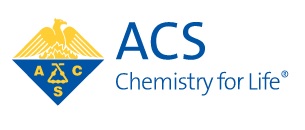 Per‐ and Polyfluoroalkyl Substances Associated with Aqueous Film Forming Foams (AFFF): Chemistry, Remediation, and Regulatory Issues
Per‐ and Polyfluoroalkyl Substances Associated with Aqueous Film Forming Foams (AFFF): Chemistry, Remediation, and Regulatory Issues
Abstract Deadline: 12 October 2015
For more details go to http://www.acs.org/meetings/
22-26 May 2016, Nantes, France
SETAC Europe 26th Annual Meeting
The scientific programme consists of 104 sessions amongst 10 main tracks:
- Aquatic and terrestrial ecotoxicology
- Communication on and public perception of environmental risks
- Effects of toxicants across time, space and levels of biological organization
- Emerging contaminants: fate, effects and environmental risks
- Environmental fate and transport of contaminants
- Environmental omics, (epic)genetics and adverse outcome pathways in ecotoxicology and risk assessment
- Life Cycle Assessment and Sustainability
- Modelling approaches for fate, exposure, effects and risk assessment of chemicals
- Risk assessment, mitigation and monitoring
- Special sessions (only poster abstracts; platforms are upon invitation)
For more details go to http://nantes.setac.eu/
29 May-3 June 2016, Ascona, Switzerland
NonTarget2016 conference: Non-target screening of organic chemicals for a comprehensive environmental risk assessment
NonTarget 2016 will address state-of-the-art non-target screening approaches, including analytical technologies for detecting organic contaminants, application to real-world studies, and implementation in risk assessment. The conference with about 100 participants will be a forum to bring together leading scientists from allied disciplines (chemistry, informatics, toxicology) along with stakeholders from industry and regulatory bodies to stimulate scientific exchange, identify future research needs and foster practical application of non-target screening.
The program will feature a mixed format, with keynote lectures from leaders in the field along with shorter oral and poster presentations from conference participants with special consideration for young researchers. Workshops and working groups will be organized to stimulate intense discussions on the applicability of practical informatics tools as well as to trigger exchange of new and emerging strategies for unknown compound identification that could be continued after the conference.
Topic 1: Frontiers in non-target screening: instrumentation, data evaluation, application to micropollutant monitoring in the aquatic environment
Topic 2: Identification of contaminant transformation products and metabolites formed in biological and technical systems
Topic 3: Tools to prioritize identification: statistics, exposure modeling, toxicity
Workshops on:
A. Unknowns contaminant identification from mass spectrometry data
B. Prioritization strategies
C. Exchange of data on suspects & unknowns
Conference scientific programme
Deadline for registration: 29 April 2016
For more details go to http://www.nontarget2016.ch
21-22 June 2016, Berlin, Germany
European Conference on Plastics in Freshwater Environments
The objective of this conference is to exchange knowledge on plastics in European freshwater environments and to discuss its environmental and societal implications. Stakeholders from regulation, nongovernmental organisations, industry, water resources management, waste management and science will present lectures and posters.
The conference is organised by the German Environment Agency and the German Federal Institute of Hydrology on behalf of the Federal Ministry for the Environment, Nature Conservation, Building and Nuclear Safety. It will include a full range of academic sessions, plenary lectures and poster corners.
For more details go to http://www.umweltbundesamt.de
27-29 June 2016, Cannes, France
8th International water & health seminar
In the wonderful environment of the French Riviera, with scientists from International Bodies and Universities, and under the sponsorship of SUEZ, 20 PhD students are invited to present their work and discuss their results with senior academic and industrial researchers. Topics covered include emerging waterborne pollutants and pathogens, epidemiology, microbiology, toxicology, analytical chemistry, risk assessment, water treatment, water hygiene and public health. Topics related with the sociological aspects of risk management are also welcome.
Aim of the Seminar
• Favour the dialogue between young and senior scientists in this fast moving scientific area
• Allow young researchers to discuss their results with internationally recognized scientists
• Foster the dialogue between all disciplines contributing to the advancement of water safety
• Develop mentorship and networks between academic scientists and the water industry
• Identify new research needs to improve water safety well into the future
21-25 August 2016, Philadelphia, Pennsylvania
Nanotechnology for environmental solutions and remediation
 Nanomaterials and nanotechnology are promising fields for industrial development of innovative products that achieve higher efficiency due to the tailorable properties of the particles. Among such features, companies working in energy are interested in their increased conductivity, optimization of energy consumption, reduction of weight, and more, while food and medical industries focus on their increased opacity, antibacterial activity and coating of hydrophobic compounds among others.
Nanomaterials and nanotechnology are promising fields for industrial development of innovative products that achieve higher efficiency due to the tailorable properties of the particles. Among such features, companies working in energy are interested in their increased conductivity, optimization of energy consumption, reduction of weight, and more, while food and medical industries focus on their increased opacity, antibacterial activity and coating of hydrophobic compounds among others.
In this frame, this symposium aims to bring together novel research on application of nanomaterials, green production of nanomaterials, methods for environmental remediation, nano-coatings that reduce the use of toxic chemical agents, nanotrojan effects, and research on methods for recycling and recover of used nanomaterials are also of great interest for this meeting. In summary, we aim to gather researchers working for the sustainable development of environmental friendly nanotechnology that can provide solutions to reduce the carbon footprint of the global economy with developments with industrial applicability in any field.
Abstract Deadline: 21 March 2016
For more details go to www.acs.org/meetings
7-10 September 2016, Prague, Czech Republic
8th International Passive Sampling Workshop and Symposium (IPSWS)
The scientific focus of the meeting will be on the use of in situ passive samplers for environmental monitoring and risk assessment; the use of passive samplers in regulatory monitoring; and valuable discussions to tackle specific practical applications of these tools.
The target audience comprises experts in the development and application of passive sampling technologies and other groups including policy makers (e.g. representatives of regulatory authorities, and other government agencies, representatives from industry), and end users (e.g. consultancy companies, laboratories, municipal water authorities) that have a need for monitoring environmental pollution.
The IPSW 2016 will include various satellite workshops, including the NORMAN satellite workshop "Promoting passive sampling through a common data repository and the use of a tiered approach for a routine implementation in water quality monitoring" on 7th September 2016 (13:00 - 17:00)
For more details go to http://ipsw.eu/2016/
8-9 September 2016, Paris, France
ICRAPHE - 1st International Conference on Risk Assessment of Pharmaceuticals in the Environment
The French Academy of Pharmaceutical Sciences invites you to attend the 1st International Conference on Risk Assessment of Pharmaceuticals in the Environment. The Conference will be held in the historic heart of Paris ("Cordeliers site").
Environmental contamination by pharmaceutical residues is a major concern throughout the world. These contaminants, with other emerging pollutants, are source of great scientific challenges in terms of ecotoxicity, public health, soil pollution, agricultural discharges, and management strategies of drinking water and wastewater.
The overall objective of the Conference is to synthesize the most recent data in order to identify, measure and manage environmental and health risks arising from human and veterinary pharmaceutical residues in the environment.
Abstract Deadline: 15 March 2016
For more details go to http://icraphe.com/en
20-23 September 2016, Sydney, Australia
5th International conference on emerging contaminants (EmCon2016) and micropollutants (WiOW2016) in the environment
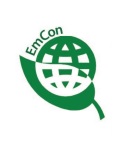 This conference provides an excellent forum for presenting the latest research and development on all aspects related to the topic of emerging contaminants across all environmental compartments (e.g. surface water, groundwater, bed sediment, soil, air, tissue, etc.). The key topics include but are not limited to:
This conference provides an excellent forum for presenting the latest research and development on all aspects related to the topic of emerging contaminants across all environmental compartments (e.g. surface water, groundwater, bed sediment, soil, air, tissue, etc.). The key topics include but are not limited to:
Special Themes:
- Mining explorations and fracking
- Urban environments and megacities
- Waste, wastewater recycling and reuse
- Nanomaterials
- Microplastics
- Tropical ecosystems
General Themes:
- Sources and exposure pathways
- Treatment processes and technologies
- Sampling, analytical and characterisation methods
- Aquatic and terrestrial effects
- Risk assessment, risk management, regulations and policy
- Abstract submission opens: 15 October 2015
- Abstract deadline: 1 March 2016 (oral presentation)
- Abstract acceptances announced: 15 May 2016
- Early bird registration closes: 15 July 2016
For more details go to http://www.emcon2016.com.au/
25-29 September 2016, Montpellier, France
IAH Events, 43rd IAH Congress
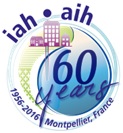 This congress of the International Association of Hydrogeologist will include a programme of eight main topics, to reflect on the achievements of IAH and look forward to the further development of IAH and hydrogeological science:
This congress of the International Association of Hydrogeologist will include a programme of eight main topics, to reflect on the achievements of IAH and look forward to the further development of IAH and hydrogeological science:
- 1- What role do or should hydrogeologists play in our society?
- 2- Hydrogeology(ists) and economic development
- 3- Hydrogeologists for the future: education and training
- 4- Economics in groundwater and groundwater management
- 5- Groundwater, and global & climate change
- 6- Active management of groundwater in the water cycle
- 7- Groundwater uses and managing groundwater use conflicts
- 8- Progress in conceptual models, toll and methods
Monitoring and prioritisation of emerging environmental substances are addressed in a special session 5.04: “Emerging contaminants in the water cycle and risk to Groundwater”
Abstracts for this special session are welcome!
For more details go to http://www.60iah2016.org/en/
